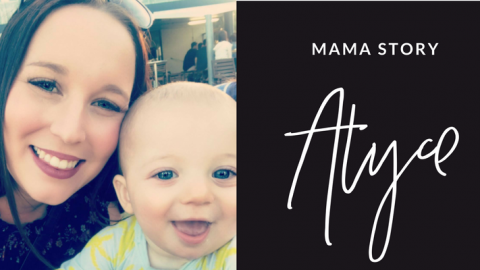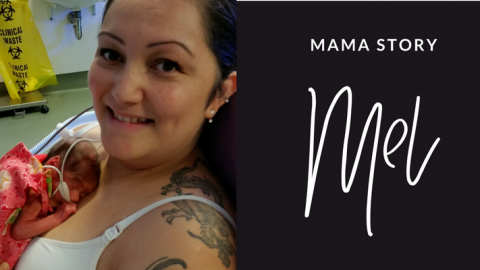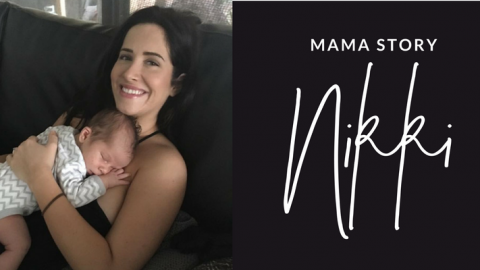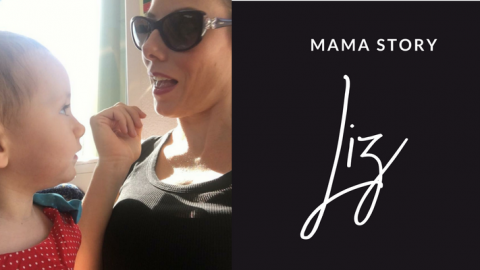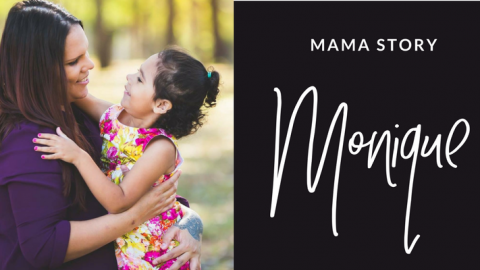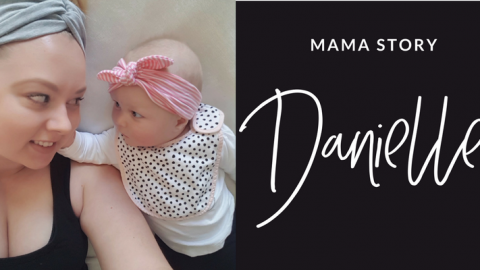Last year, COPE and Mama Tribe joined forces to change the face of perinatal care in Australia. COPE Founder and Executive Director Dr Nicole Highet shares her story:
What motivated you to start COPE?
I have always been passionate about women’s emotional and mental health – especially around the time of having a baby when there are so many adjustments, expectations and when, not surprisingly, women are more likely to develop mental health problems than at any other time in their lives.
I also saw the need to take a preventative approach. Whilst there are a number of organisations that do important work around postnatal depression and anxiety, I saw the need to focus on it in the context of the bigger picture.
There are so many challenges that a woman may face during her journey into motherhood that impact her emotional and mental wellbeing, including problems conceiving, miscarriage, stress, changes to her relationships, birth trauma, breast-feeding difficulties, ambivalence about motherhood and social isolation (just to name a few!). And too often these challenges are not talked about in a real and honest way.
Whilst the journey differ from one woman to another, so many women feel high levels of pressure and expectations – be it from themselves or those around them – and they then don’t speak up to say that they are struggling and so they don’t get the support and help they need.
For example, COPE’s research shows for that 74% of women who had antenatal depression and/or anxiety did not get help until they reached the point that they could no longer cope. That is almost three in 4 women!
So I started COPE to bridge that gap. I want to empower women with high quality information about these topics so that they feel reassured, know that they are not alone and not at fault and know how, when and where to get help.
What advice would you have for a mum or expectant mum experiencing anxiety or depression or anxiety?
Firstly, I would say to anyone experiencing a perinatal mental health condition that it is NOT their fault. Just like it is not your fault if you have high blood pressure in pregnancy or a breach baby, it is not your fault or a personal weakness or failing if you have depression or anxiety (or, for that matter, if you have an unsettled baby, are unable to breastfeed despite wanting to, have emergency caesarean and so on).
It’s critically important for ALL Mamas to be aware of the signs and symptoms of anxiety in pregnancy and following birth, as well as antenatal and postnatal depression – so you can get help early. The sooner you get help, the sooner you can recover. Too often women put the early symptoms down to being just a normal part of pregnancy or having a baby (e.g. hormones, tiredness). They then miss the early signs of something more serious and help is not sought until the condition has progressed – robbing them of special times at this precious stage in their life.
So if you think that something isn’t right, don’t wait. Don’t try to just “get through it.” Get help early. You don’t have to be on the edge of not coping to benefit from help.
What advice would you give someone to help support a mama going through depression or anxiety?
My first piece of advice is that ALL Mamas need to be aware. Be aware of your expectations for motherhood and be open to the fact that everyone’s journey into motherhood is different. Raise your awareness around the symptoms of PNDA so you can be there to identify and support others around who may be struggling. We need to be open and honest about the challenges that come with motherhood, to allow others and ourselves permission to talk, be heard and feel supported.
When it comes to supporting others, the best thing we can all do is drop the facade. There are good days and bad for all of us, that is simply the reality. Sure some women will have more challenges than others, but it is not a competition and those who are having more challenges are not causing them by doing something “wrong.” By just being open and honest, and acknowledging that it can be hard, we can all create an environment of support and understanding.
If someone you know is struggling with anxiety and/or depression talk about it. Let them know that it’s common and listen to what they have to say. Don’t give up on them because you feel you are not getting anything back – they may feel so depleted that they have nothing to give right now. Stay with them and let them know you are there for them. Try and help with small things – babysitting, cooking a meal – these will all make a huge difference when someone is struggling with the demands of depression/anxiety and the demands of pregnancy or a new baby. Encourage and support them to get help.
Where can I find support?
You can sign up to receive COPE’s Ready to COPE emails, which are filled with information about your emotional and mental wellbeing as you travel through the various stages of your pregnancy and/or first year of your baby’s life. The emails will be sent based on your baby’s due date or birth date, so it will be relevant to you when you receive it.
Ready to COPE will provide you with:
- Insights and understanding of the range of emotions you may feel during pregnancy and early parenthood;
- Useful and practical strategies to support and maintain your emotional wellbeing, including how to get help for yourself or someone you know who may be struggling;
- Increased awareness of the common mental health conditions during pregnancy and early parenthood; and
- Personal stories from other men and women regarding their experience with emotional and mental health challenges during the perinatal period.
You can also look for support in your local area by searching the e-COPE Directory.
And of course – join your local Mama Tribe!



